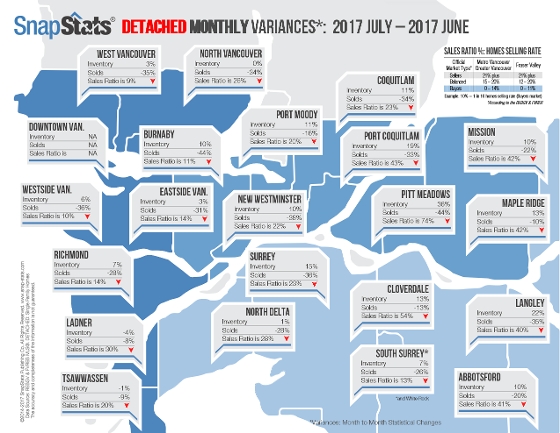Vancouver, BC – December 12, 2017. The British Columbia Real Estate Association (BCREA) reports that a total of 7,731 residential unit sales were recorded by the Multiple Listing Service® (MLS®) in November, an increase of 20.4 per cent from the same period last year. Total sales dollar volume was $5.59 billion, up 39.1 per cent from November 2016. The average MLS® residential price in the province was $723,112, up 15.5 per cent from November 2016.

“November was the third consecutive month that BC home sales were above 9,000 units, on a seasonally adjusted basis," said Cameron Muir, BCREA Chief Economist. "Elevated consumer demand is being supported by strong employment growth, rising wages and favourable demographics."
BC employment increased 3.8 per cent over the last 12 months, totaling over 90,000 jobs. Over the same period, average hourly wages in the province climbed 5.7 per cent to $26.82. Against this backdrop, a large cohort of millennials is entering their household-forming life stage. In addition, some buyers are likely completing purchases now in advance of tighter conventional mortgage qualifications, scheduled for the new year.
Year to date, BC residential sales dollar volume was down 6.8 per cent to $69.4 billion, when compared with the same period in 2016. Residential unit sales declined 8.8 per cent to 98,024 units, while the average MLS® residential price increased 2.2 per cent to $708,150.






